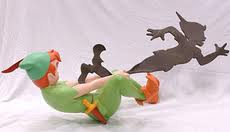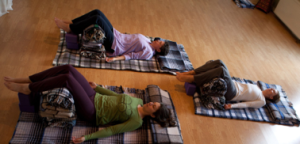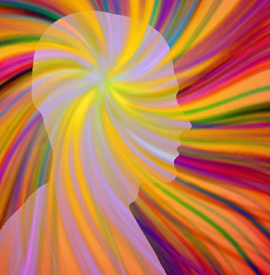Settling Into Yourself
October 26, 2013
You know the feeling: the way you feel when you sit down in your favorite chair. Or, the way you feel as your head rests on your pillow in bed and you pull the blankets up and close your eyes. Settled. Comfortable. Secure.
What about settling into ourselves?
Today my yoga teacher said, “Settle into yourself.” I thought, “What a beautiful, tender thought,” Then I thought, “How do I do that?”
So now here I am trying to figure it out. If I think about a workday morning and all that happens from the moment I open my eyes, get out of bed and begin the day, there is really nothing at all about settling into myself. I am settling into the day and the morning routines, but really not into me.
At work, it’s a similar pattern. First there are all the routine things to do, then the checking in with people and then the doing of being a preschool teacher.
And the day continues on in much the same way. I give no thought to “me”. I get caught in routines. I get wrapped up in feeling rushed, frustrated, hungry, tired, or grumpy. I do things automatically, like driving to work without really thinking about it. I never settle into me. I settle into “me in the world with rolls to play and jobs to do”, but not into the essence of who I am. My true self.
Why not? Do you?
What would settling into myself even look like or feel like? Checking in with how my body feels? With what my mind is thinking? With lists of things to do today?
How do I settle into myself like I settle into my bed at night? How do I experience the relief of being me? Of feeling comforted by me? Of feeling safe and secure in me? This is different from taking for granted or believing that I do feel these these things because I should, and therefore, somehow, do.
I had a moment during meditation this morning where I experienced something that was perhaps settling into myself. It was a feeling of being aware of my body as a feather: light and all most imperceptible. Very little physical sensation. My mind was quiet, very few, tiny thoughts of nothing in particular. A muffled sense of my surroundings that was really only insignificant. I was aware from deep inside that perhaps I had just then settled into myself. When “everything” was taken away or absent, there was only a sense of being that was fresh and light and an awareness that placed no value, judgement, expectation on myself.
Perhaps for a moment I did settle into myself……
The Shadow
August 25, 2013

I ran into Shadow quite unexpectedly the other day….and you know the rest of the story: I got to thinking.
Carl Jung came up with the idea of archetypes years ago. In college it was considered cool to know about Jungian psychology and try to piece together the puzzle of our personal archetypes.
First things first: I am not trained in any of this. I just think about it, and write my thoughts down.
Jungian Archetypes explained courtesy of Wikipedia:
” Carl Gustav Jung was a psychiatrist and psychotherapist who developed an understanding of archetypes as universal, archaic patterns and images that derive from the collective unconscious and are the psychic counterpart of instinct. They are autonomous and hidden forms which are transformed once they enter consciousness and are given particular expression by individuals and their cultures. Being unconscious, the existence of archetypes can only be deduced indirectly by examining behavior, images, art, myths, religions, or dreams. They are inherited potentials which are actualized when they enter consciousness as images or manifest in behavior on interaction with the outside world.”
Jung defined twelve primary types that symbolize basic human motivations. Each type has its own set of values, meanings and personality traits. The twelve types are found in four basic groups: The Shadow, The Anima, The Animus, and The Self.
http://changingminds.org/explanations/identity/jung_archetypes.htm
Today I’m bringing Shadow out into the light.
The Shadow refers to the whole of unconscious—everything that we are unaware of, the aspect of our personality that does not recognize itself. All those parts of ourselves that we feel are negative, undesirable and that we try to ignore or reject, are wrapped up in Shadow’s cloak. Almost overlooked however, are the good qualities hiding there too. They become weakened by low self esteem, self doubt. They too are lost in the folds of Shadow.
The Jungian shadow often refers to all that lies outside the light of consciousness, and may be positive or negative. “Everyone carries a shadow,” Jung wrote, “and the less it is embodied in the individual’s conscious life, the blacker and denser it is.” It may be (in part) one’s link to more primitive instincts.”
(*What are our primitive instincts? To survive?…how do we protect ourselves by empowering one aspect while perhaps closing off or ignoring another? What other of these primitive instincts can you identify with?)
Shadow likes to project. Shadow is instinctive and irrational. “Shadow uses projection to turn a personal inferiority into a perceived moral deficiency in someone else. If we allow Shadow to project these thoughts unrecognized and unchecked, then Shadow has a free hand to possibly bring about a “realization of its object” and give this situation character power…..it creates a thick fog of illusion between the EGO and the real world…” You/we give power to something that is a projection and is not real. (Wikipedia)
As a Jungian Archetype, Shadow is made up of life instincts. “The shadow exists as part of the unconscious mind and is composed of repressed ideas, weaknesses, desires, instincts and shortcomings. This archetype is often described as the darker side of the psyche, representing wildness, chaos and the unknown. These latent dispositions are present in all of us, Jung believed, although people sometimes deny this element of their own psyche and instead project it onto others.”
Sometimes Shadow makes itself known in our dreams. Shadow may appear as a snake, a monster, or other dark or wild figure.
From Robert Augustus Masters, PhD:
“Shadow is whatever in us we are disconnected from or out of touch with, whatever we have disowned in ourselves, whatever we have not illuminated or will not illuminate in ourselves, whatever in us we are keeping out of sight.
So our shadow is that zone of us which houses what we have not faced or can’t/ won’t face about ourselves. To the extent that our conditioning (especially that originating in our childhood) is allowed to run us, it is our shadow. Or put another way, to the extent that our conditioning is kept in the dark, it is our shadow.
If we are to truly evolve, we need to know our shadow, and know it very well; if we don’t, our shadow will direct our lives on every level.”
So what can we do to bring Shadow out from the dark? How do we get to know Shadow?
First you have to recognize Shadow, and this hard. What is it in others you dislike? Is that Shadow projecting something about you onto another? What are your self doubts, fears?
How can you identify core wounds and heal them?
Are you able to work effectively with your feelings of anger, shame, fear, and guilt?
Are you able to step back and pause in order to see how your Shadow affects those around you.
Are you able to “be one with your pain” and ease your hurt and suffering by doing so?
Can you effectively stop the mind chatter that is the loudest critic of you?
Do you have a spiritual base? Anything? Organized religion or not?
For some meditation or guided practices may help.
Shadow, the part of us we cannot “see” is often the part of us that makes the decisions. And sometimes within those decisions, Shadow makes the same mistakes over and over again. We have to reclaim Shadow and understand Shadow.
Obviously, if this speaks to you, it is not a quick fix. Shadow holds the reigns on a large reservoir of energy. Somehow we have to tap into this.
Curious? The link below has some interesting thoughts. I’m not endorsing him, just introducing an idea to you. I have not read or listened to this person’s work other than this podcast.
http://learni.st/learnings/206576-robert-augustus-masters-what-is-the-shadow-sounds-true-podcast
“The big step is to turn towards what we are running away from” Robert Masters
Perfect
May 20, 2013
I am in my mid 50’s. I need to loose some weight. My hair is gray. There are some wrinkles on my face. Freckles have changed into age spots. I move more slowly than I used to. I wear glasses to read.
At 50 I took up Svaroopa yoga and it has breathed a new life into me. I embrace myself. Even when I look in the mirror and do not see the person I see myself as….25 years younger, flawless skin, light reddish hair……inside I am that person.
Today I did a 3 hour yoga class. As always, the class begins and ends with shavasana (the Corpse Pose) and a guided mindfulness meditation. I have moments where I experience what some people call the” zen-like mind”. No thoughts. Just a blank silence.
Today when my teacher began the end of the class shavasana, she said what she says every time: ” As you settle into shavasana notice how your body feels.”
I momentarily held my breath as I heard my inner voice answer, “Perfect”.
That is a word I never associated with yoga. Or with myself. But there it was. Perfect. And that IS how I felt. In every sense. The whole moment. My whole being. My thoughts or lack of thoughts. The silence and the mind chatter. The muscle twitching.
perfect
It made me think of the mantra I sometimes use: So Hum. It means “I am that” or “I am this”. And that is what that “perfect” meant: “I am this”. Nothing more. Nothing less. Just this.
It was a lovely moment. A lovely place to be. Just this. And it was complete in itself. I was complete in myself.
The In-Between Spaces
August 4, 2012
ECOTONES: the in-between spaces in an ecological setting.
It is a transition area between two biomes
or different patches of the landscape,
like the space where the ocean meets the shore.
We have spaces like this too. In-between spaces, where the boundaries are blurred. It is not always clear where one emotion or thought begins and another ends. There is a symbiotic relationship. Each “part” needs the other to be balanced, but sometimes the boundaries change or are blurred making it difficult to feel we have completely moved on from one to another.
Emotions, thoughts, feelings that we might consider separate, actually coexist. There is no finite boundary, no solid line where one begins and another ends.
For many of us this lack of clearness can be difficult. We want to know that one thing is ending, finished, and another is beginning. But it isn’t always so easy, so clearly defined.
We have pain and sorrow right along side joy and happiness. Anxiety can be cradled next to assurance. Perhaps trust is holding hands with doubt.
How do we live with dynamic boundaries where variables blur the edges? The in-between places where we are just not sure of what is going on, of how we are feeling, of where are going, or where we have been? What we may have lost? What we might have gained?
In nature these areas are sometimes turbulent, sometimes peaceful. Waves on the shore may carry sand and plants away, eroding the shore. Other times the waves bring new sand, plants or animals to the beach. Sometimes these are “good” changes, sometimes not. There is a give and take. Sometimes the balance is quick and easy. Other times, the compromises cause the two sides to give something up. But in the end it is Nature’s way. Nature is life. And death. And violence. And supreme gentleness. In the ebb and flow there is all that represents life: change, uncertainty, risk, balance, loss, pain, joy, gain, happiness, sorrow, life, death, beauty, “ugliness”, fear, calm, love……without any one part, the other pieces are diminished.
Think about the synonyms for “transition”: changeover, conversion, development, evolution, flux, growth, metamorphosis, passage, progress, progression, realignment, shift, transformation, turning point, upheaval.
What are the whispers from your in-between places telling you? Take some time in this space and listen to the possibilities.
The Wilderness of Your Intuition
June 10, 2012
“You have to leave the city of your comfort and go into the wilderness of your intuition. What you’ll discover will be wonderful. What you’ll discover is yourself.” ~Alan Alda
Definition: The word ‘intuition’ comes from the Latin word ‘intueri’, which is often roughly translated as meaning ‘to look inside’’ or ‘to contemplate’. Wikipedia
Many of us know what intuition feels like. The sinking feeling in your gut. The hair rising on your arm. A nagging feeling that says “leave”. For some, we laugh at the possibility that it might be real, yet find it easy enough to say: “I had a feeling about that”.
Few of us think about the resource intuition could be, or the power it holds. Some of us may think intuition is a quirk. Some of us think it’s so random an occurrence that it could not be significant.
What if there is power and significance in intuition. What if it can be harnessed and used to help us throughout life. What if, as Alan Alda says, you will discover yourself.
I know I have had very significant moments in my life where intuition was very important. And, there were also times where what I thought was intuition was simply fear of uncertainty. Obviously we have to learn how to be aware of true intuitive insight.
A huge barrier to our intuition being able to be heard and trusted is the hustle and bustle of our daily lives. We are seemingly always scheduled. If there isn’t something on the schedule, we find something to do. We have computers to tempt us, video games to lure us, music to sooth or invigorate us, sports to keep us fit, get togethers to keep us from feeling alone…..but very little time to just BE. To sit, to have silence. To hear the rhythms of our own body, mind and soul.
But why is it important to be able to hear intuition speaking? You know why. Those gut feelings that turned out to be true. There is something inside of us that “knows”. Not all the time. Maybe not even accurately all the time. When we learn to work as a partner with our intuition, we join forces with something powerful that is already a part of us. A part that is getting pushed further and further away from the forefront by all the enticing things that are currently available to us. What if we are loosing touch with something important?
Is it too hard, or too much to provide ourselves with time to nurture our inner voice, to make friends with it again? What do you think?
Solitude is not loneliness
April 10, 2012
The great omission in American life is solitude; not loneliness, for this is an alienation that thrives most in the midst of crowds, but that zone of time and space, free from the outside pressures, which is the incubator of the spirit. ~ Marya Mannes, US author
Scott McIntyre wrote a nice little piece for Goodlife Zen articulating the difference between solitude and loneliness. He makes a statement I personally have thought about often, and believe to be true for many today: we are hesitant to seek out solitude because we are afraid of loneliness. “Aloneness” often brings to mind a lack of belonging.
“Solitude is refreshing, a time of being on your own where you voluntarily retreat from the company of other people.”
By engaging in this time of instant connections, are we loosing the capacity to get in contact with our inner selves?
How does solitude fit into manifesting our own potentiality? If we loose the thread of seeking out solitude as a means of growth and healing, what replaces it?
http://goodlifezen.com/2010/11/10/the-lost-guide-to-finding-yourself-in-solitude/




